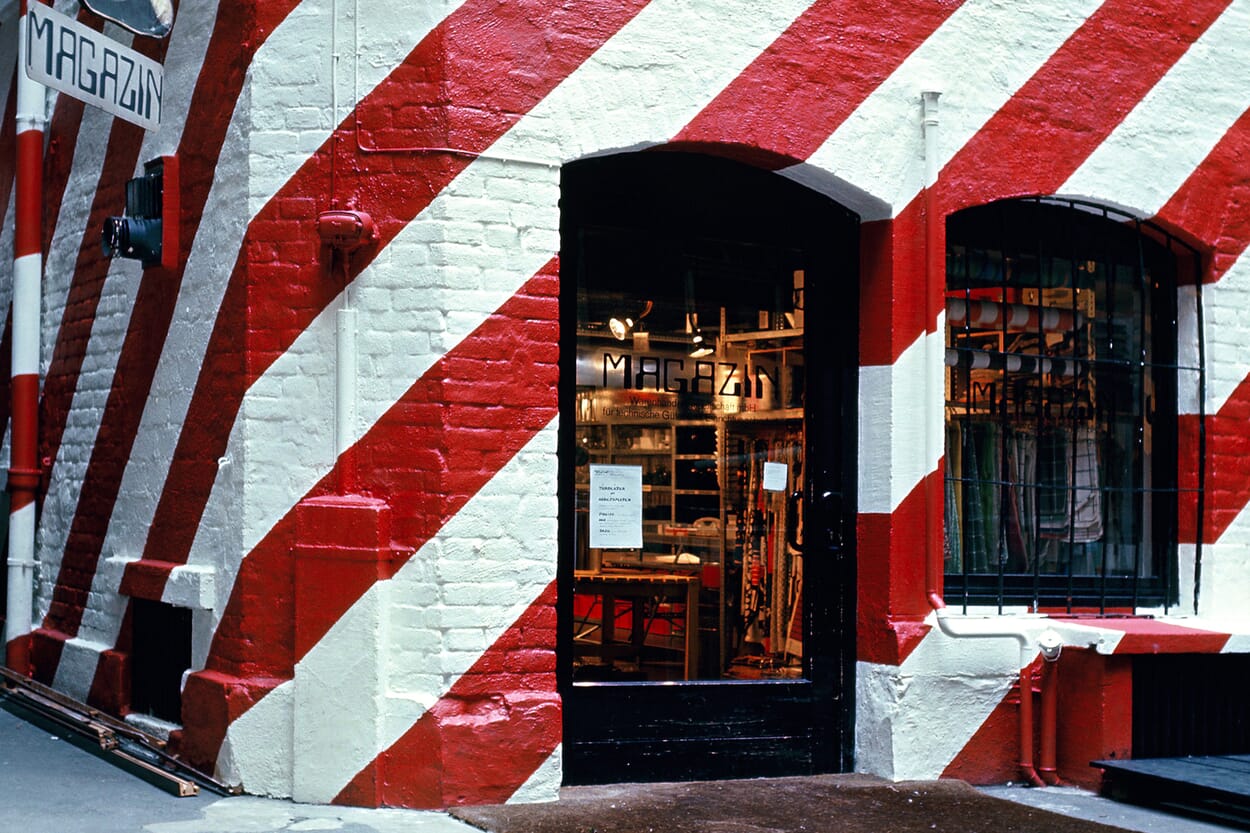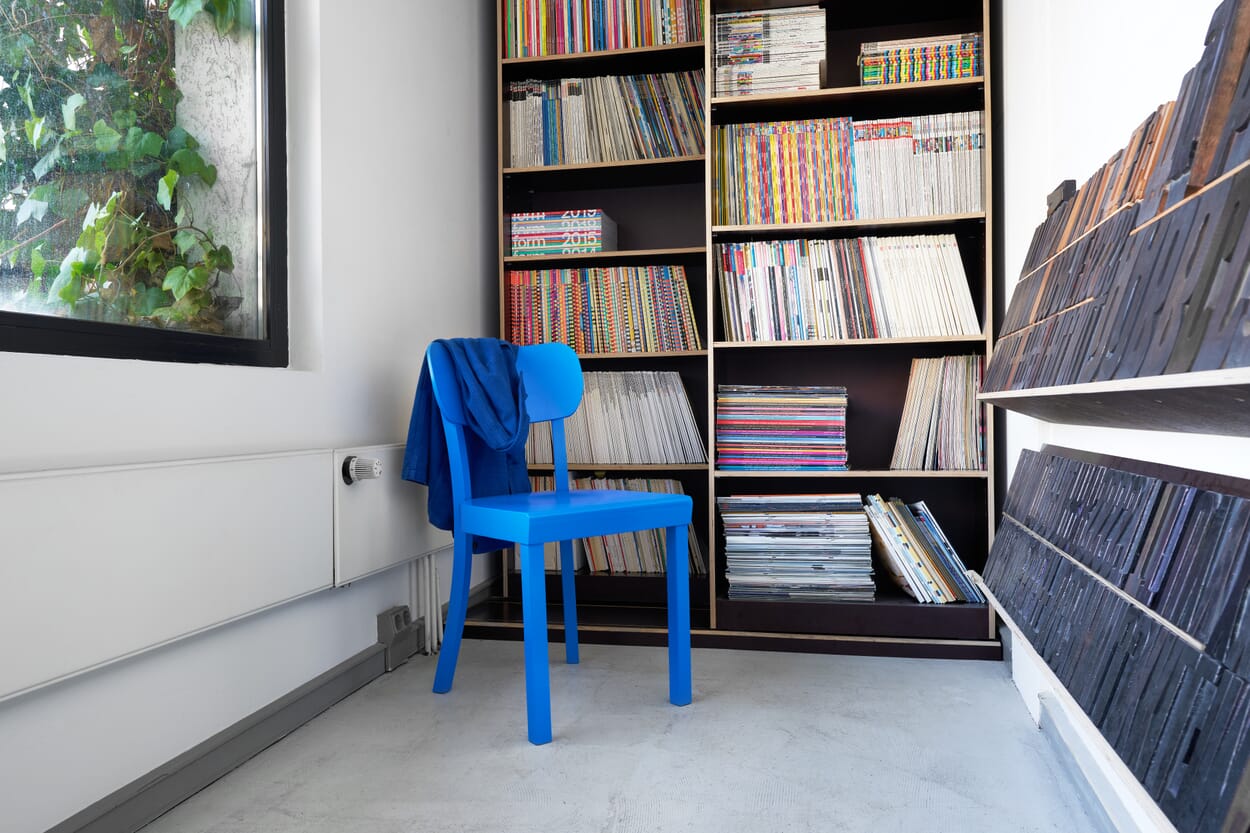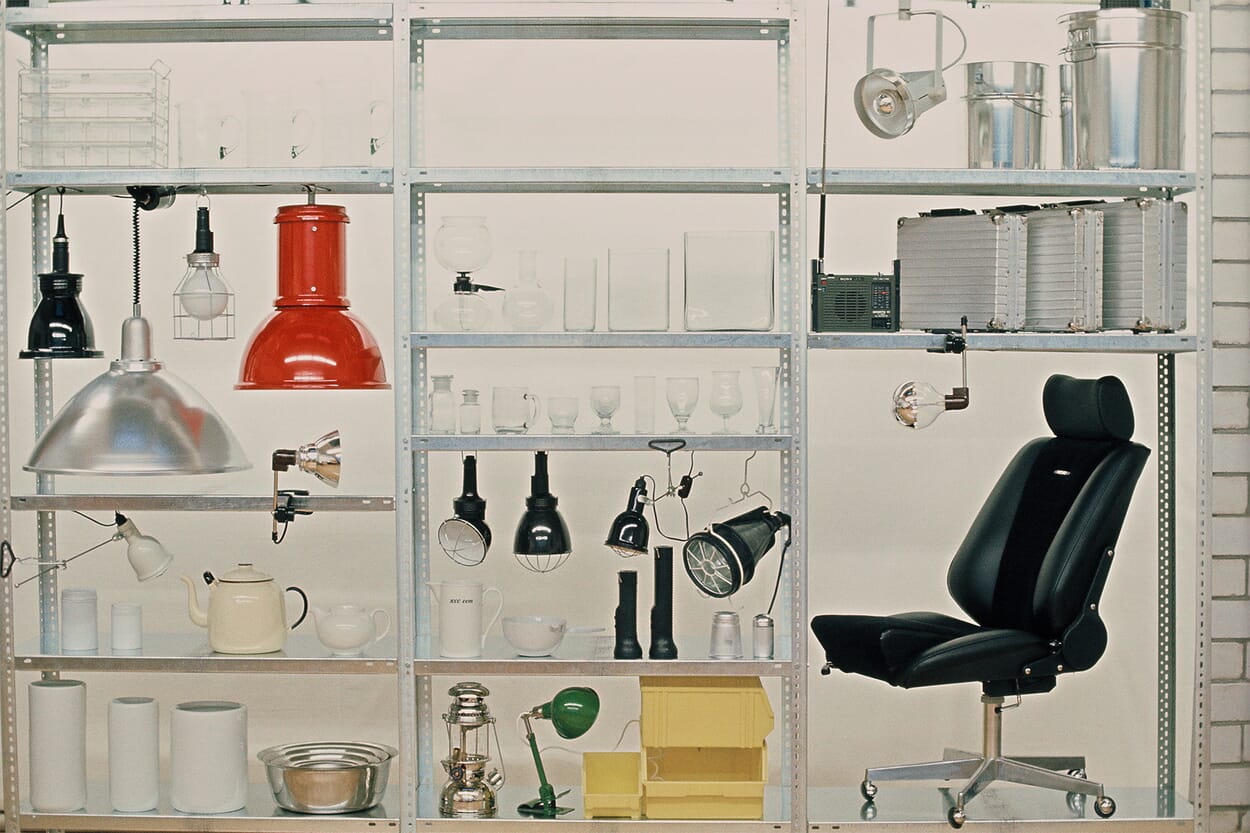DESIGN STORY(IES)
SCHÖNER WOHNEN
SIBYLLE BERG
Do you dream about apartments that often? Sure, that means something, but as I'm a simple minded person, I always take dreams 1:1 and after a successful dream about an apartment, I just think: Wow, that was another nice apartment. If I find an object in a dream that I like, I visit it again and again. At the moment it's an elongated apartment with an old glass roof, heavy wooden planks, libraries, Manufactum furniture (or something like that) and a stream next to the door. With a creek seat, so to speak. In real life, I always live somehow and am amazed when I visit adults. That strange feeling that develops when you stand in front of a particularly well-designed house in a particularly refined street. Ivy, conservatories, the whole nine yards. Then you enter a perfect apartment and the feeling becomes big and powerful, and I always confuse it with simple envy in the first few minutes. Overwhelmed, I stand on teak floors, large double doors open onto terraces overlooking the lake, when it gets warm there will probably be fluffy four-poster beds - surely a second storey in the apartment, how can you live without a second storey, Italian couches, damask bed linen, hatches into which you throw dirty laundry, which then glides like a lynx into a laundry room, 230 square meters, that's what you need for two, we don't want to get on each other's nerves, say the inhabitants of the perfect apartment, and all right, I think. Then you're sitting there, at a table, fire country cherry, 50 kg, a meal is served, various courses, the hosts are also brilliant cooks and talk about balsamic vinegar. What I initially thought was envy has now become paralysis. The apartment, the lifestyle, everything seems to want to humiliate me. At almost 120 years old, I still live in a permanent provisional arrangement. I've never had a perfect apartment, only the one that was available at the time and then I had to look for another one. Like right now.
Humiliation, did I mention that? First enter the finest circles on the real estate page, in the case of Zurich: city center. Bahnhofstrasse, old town, that sort of thing. Normal. If you want to spend ten thousand francs a month. Don't complain, if you can't afford Switzerland, you can move to Austria. Or back to Germany. That's where all the people who are snapping up your apartments are coming from anyway. And I've almost forgotten, with all my patriotism, that I used to come from there too. Quick change of subject. Mrs. Kaas taught us that paying high rents is no guarantee of happiness in a flat. She spent sixteen thousand on an aquarium in which, surprisingly, she felt like she was being watched because there were aquariums opposite and to the left and right. It was with undisguised glee that I saw the behaviorally conspicuous Mrs. Kaas hurrying through this apartment, always properly dressed, the lights off. These modern apartments that all look the same, concrete walls, open kitchen, the prototype can be seen in Zurich above the Riffraff cinema. One or two young men, I find it hard to tell them apart, with those same stupid haircuts, jeans, sweaters, seem to be doing a housing project. They play electric guitar in their apartment in full light, have the kind of furniture that everyone has nowadays, Eames chairs, USM Haller stuff and funny flea market clothes (I always mix brand-name clothes with flea market pieces), and they move around in it for everyone to see. The lofts are the terraced houses of today. Where was I?
I looked for another apartment for a year, as long as I lived in my current one. Oh, you experience things there that I don't write about, because you've read the witty essays about carpets with salesman's egg white stains, brothels in the house and methadone dispensaries in the basement. It doesn't really matter where I move to now, because it won't be the perfect apartment again, and that reveals something fundamental. There are people who are made for the ultimate, and others who will fiddle their way to the end. Nailing up curtains because you have no idea how else they're going to hold, furniture, why furniture? You have to move it back to the next apartment, and, old man, the stuff some people have. Men come and carry pianos. What wonderful jokes there are about transporting pianos, but what's the point of a piano if you're not a pianist? A friend recently asked about my dining table. Dining table, my mouth opened, perhaps a little saliva ran out of it. Dining table, a crazy idea.
Food is eaten in bed or on the floor, and I will never understand guests in the apartment. Why expose people to the shame of too much intimacy when there are restaurants. It's possible that I have something of a washing compulsion related to guests and my apartment, I'm uncomfortable standing in other people's dens. Too intimate, too much information, I don't want to see what other people smear on their faces, toothbrushes with food residue, toilets where it's clear how your spouse excretes, the smell of garlic from the sink, and knowing that the ball of dust under the bed is made of skin flakes - am I crazy, or is it really nobody else's business what people do in their caves? And then you have to sit there, and stuff is proudly served up, cooked by yourself, and then I have to say - I don't eat meat, and I don't eat alcohol in sauces, and I don't eat sauces, and no, just eat little lambs, that's ok, I'll have some of these Brussels sprouts, which I hate, and cry because of the lamb - I hate that. Anyone who is too cheap to go to a restaurant and take me out should just leave it all alone. Well, that's what the people I know do. After a hundred rejections and no return invitations, my reputation as an oddball is established at some point. The older I get, the more furnished my friends become. With dining tables, stripped parquet floors, reupholstered Bauhaus loungers and homes of their own. That's the issue now: What, you don't want to buy anything? It's the best investment and mortgages are so cheap at the moment. Leaving aside the fact that I don't know what a mortgage is, questions like this make me feel almost as insecure as those about a dining table. Do I have to buy something now? How am I supposed to pay for it, is just one question. Then I look at villas on Lake Como for a few billion with a guilty conscience, but I don't think that's what it's meant to be. The people I know are buying three-room apartments in places like Forch, Trödiswil and Oberau. The term "loft development" comes up a lot. So the acquaintances move an hour outside the city into a concrete aquarium box, set up perfect furniture and sit there forever, waiting for visitors for dinner (dining table). The horror usually ends when they pass away, and then the grandchildren are left standing in the concrete box, which by then has become completely unfashionable, and have to dispose of old Interio sofas.
But of course none of the perfectionists think about that. The addiction to perfection is probably just the mistaken belief that it will manifest itself in time, forever. The more perfect the surface, the more impossible it seems to imagine the imperfection of late old age and death within it. Drowning on Eileen Grey? Crashing through Puls 5 booths in a wheelchair? (Puls 5 for non-residents of Zurich: urban misery in concrete, singles and young couples over-indebted in glass boxes) Perfect living is a bit like being dead. What else is there to come when everything is already there? But perhaps the feeling I get in perfect apartments is nothing more than envy. Maybe I would know what happiness is really like if I were sitting in this apartment that I always dream of, with a creek seat. Sibylle Berg was born in Weimar and is a Swiss citizen. She is one of the best-known playwrights in the German-speaking world. Her award-winning works have been translated into 34 languages. This text is an excerpt from the book "50 Jahre 50 Produkte - Designgeschichte(n) erzählt von MAGAZIN". Available now.
MAGAZIN1971
The book for MAGAZIN! 50 years of MAGAZIN encourages a special look at themes and products, stories and current affairs. Founded in Stuttgart in 1971, MAGAZIN has experienced and written history. Companions and contemporaries, product designers, customers and lovers of the brand have their say on what has happened. A collection of essays, e.g. by Sibylle Berg on "Schöner Wohnen" and Maxim Biller on "Erinnerungen von Morgen", meets contemporary topics on product design, design and furnishing. Supplemented by a special look at 50 exemplary products from the history of MAGAZIN. Including the popular and the little-seen, highlights and the inconspicuous, the favorite products of MAGAZINS and their background stories. 21x25 cm, 248 pages with many b/w and color illustrations, bound in fine linen Duchesse. Now available.
DISCOVER MORE
We are celebrating 50 years of enthusiasm for our products and selected range. Look forward to glimpses into our digital and analog shop windows.
In Stuttgart, 50 years ago, MAGAZIN was born. A store, an idea, a program formed an innovative company with stubbornness and perseverance.













